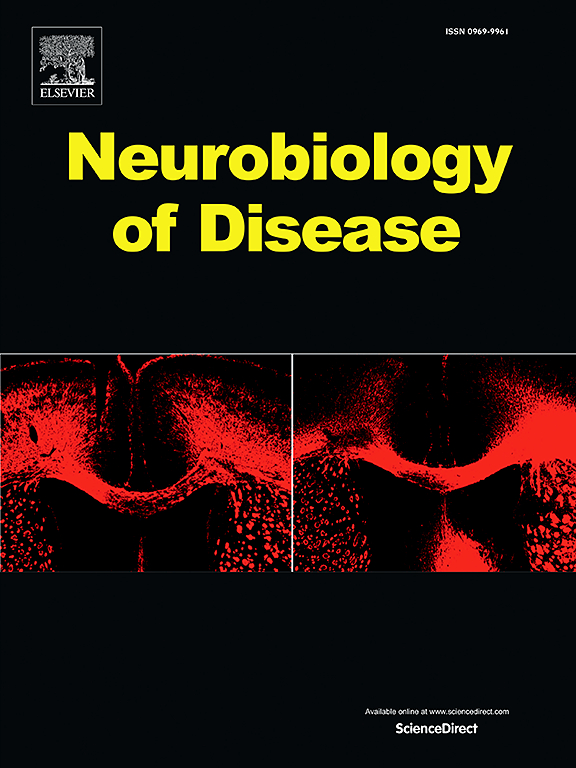贫血、血红蛋白水平和认知功能之间的关系:来自印度和美国两个基于人群的队列的证据
IF 5.6
2区 医学
Q1 NEUROSCIENCES
引用次数: 0
摘要
背景:在印度,尽管贫血对认知功能和痴呆有不利影响,但对老年人群贫血的研究还很缺乏。印度纵向老龄化研究痴呆症统一诊断评估(LASI-DAD)数据集包含详细的措施,以便更好地了解贫血作为痴呆症的潜在危险因素。方法:在LASI-DAD队列(n = 2758)中,对11项认知测试的血液测量(包括贫血和血红蛋白浓度(g/dL))进行线性回归。所有模型都根据年龄和性别进行了调整(完整模型包括农村位置、教育程度、吸烟情况、地区、BMI和人口体重)。美国健康与退休研究(HRS)队列(n = 5720)用于重复血液与整体认知之间的关联。结果:在LASI-DAD中,我们发现贫血与记忆力差之间存在关联(p值 = 0.0054)。我们发现血红蛋白浓度与10项认知测试呈正相关(β = 0.041-0.071,p值)。结论:我们在南亚人群中建立了低血红蛋白和贫血与低认知功能相关,因此表明贫血可能是痴呆的重要可改变危险因素。我们已经验证了这一结果,证明了这一风险因素在全国范围内的可变性及其与认知结果的普遍关联。本文章由计算机程序翻译,如有差异,请以英文原文为准。
The relationship between anaemia, haemoglobin levels, and cognitive function: Evidence in two population-based cohorts from India and the United States
Background
In India, studies of anaemia in older populations are lacking despite the adverse effect on cognitive function and dementia. The Longitudinal Ageing Study in India–Harmonized Diagnostic Assessment of Dementia (LASI-DAD) dataset contains detailed measures to allow better understanding of anaemia as a potential risk factor for dementia.
Method
Linear regression was applied in the LASI-DAD cohort (n = 2758) between blood measures (including anaemia and haemoglobin concentration (g/dL)) with 11 cognitive tests. All models were adjusted for age and gender (full model includes rural location, education, smoking, region, BMI and population weights). The USA-based Health and Retirement Study (HRS) cohort (n = 5720) was used to replicate associations between blood and global cognition.
Results
In LASI-DAD, we showed an association between anaemia and poor memory (p-value = 0.0054). We found a positive association between haemoglobin concentration and ten cognitive tests (β = 0.041–0.071,p-value<0.05). The strongest association with haemoglobin was identified for memory-based tests (β = 0.061–0.071,p-value<0.005). Positive associations were shown between the general cognitive score and red blood count tests including mean corpuscular haemoglobin concentration (MCHC,β = 0.06,p-value = 0.0001) and red cell distribution width (RDW,β = −0.11,p-value<0.0001). In the HRS, associations were replicated between general cognitive score and other blood count tests (Red Blood Cell, MCHC, RDW, p-value<0.05).
Conclusions
We have established in a South Asian population that low haemoglobin and anaemia are associated with low cognitive function, therefore indicating that anaemia could be an important modifiable risk factor for dementia. We have validated this result demonstrating both the variability of this risk factor cross-nationally and its generalizable association with cognitive outcomes.
求助全文
通过发布文献求助,成功后即可免费获取论文全文。
去求助
来源期刊

Neurobiology of Disease
医学-神经科学
CiteScore
11.20
自引率
3.30%
发文量
270
审稿时长
76 days
期刊介绍:
Neurobiology of Disease is a major international journal at the interface between basic and clinical neuroscience. The journal provides a forum for the publication of top quality research papers on: molecular and cellular definitions of disease mechanisms, the neural systems and underpinning behavioral disorders, the genetics of inherited neurological and psychiatric diseases, nervous system aging, and findings relevant to the development of new therapies.
 求助内容:
求助内容: 应助结果提醒方式:
应助结果提醒方式:


